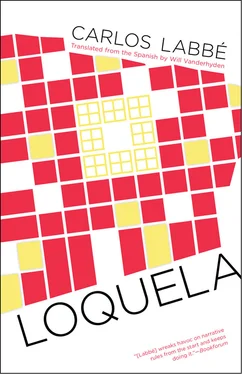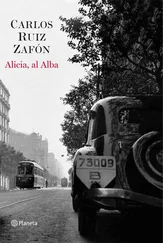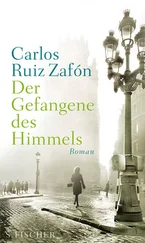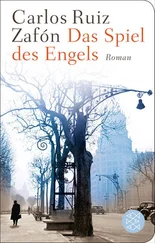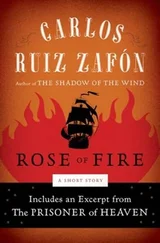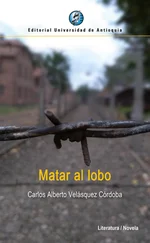Then the class and the professor disappear. I find myself walking along that same tourist stretch, along the waterfront from his story, along the boardwalk of a port city that I wouldn’t have known what to call besides: Neutria. I walked for hours. Neutria, now that I write it I understand my vacillation, but I was there; now, when I reread my dream I recognize that salty aroma, that air that’s impossible to find in Concón, or Iquique, or San Antonio, just as I imagined those streets when I read Violeta’s pages! And in this city there were, in effect, not one, but hundreds of identical statues; in every Neutrian plaza, the same plaster and marble couple, clinging to each other, in all those classical profiles, the demented eyes of Violeta, her hair white against a masculine face.
That Sunday afternoon, in my dream, I sat down on a bench in the plaza, surrounded by adolescents touching each other for the first time, two old people watching everything, a middle aged couple arm-in-arm, a balloon vendor, an organ grinder, children, dogs. From the water rushing out of the fountain that plaza’s statue had become, through the bustle of the crowd, a faint voice called my name. I approached the fountain and heard the sound of a small waterfall: it wasn’t the bullet, it was the professor; it’s not a gunshot, it’s a sentence; not a detective novel, but an academic essay, a letter, a prayer. Then another image was superimposed: me and ten people whom I love, around a table. Sitting in the dining room of my old childhood home, in Rancagua. I held a thick pen in my hand, a felt-tipped pen with which I wrote a hundred insults on a plastic whiteboard: “Go away, fucking fuckhead professor, decrepit piece of shit, motherfucking fairy, get out of my body.” Someone shakes me awake; Alicia (or J) asks me about Violeta, where is Violeta. I write another sentence on the whiteboard: “Carlos closed the small notebook.” Then everyone remains still and reads what I write in silence, and I wake up, furious that I can’t remember what it was I wrote that was so important, realizing at last that I am not Carlos, that no one calls me Carlos.
That night Carlos slept at his parents’ house because he had to watch his little sister. Elisa had asked to use his home studio, she needed to put together some pieces of iron and concrete. Bernarda, a friend from university, who was also taking the opportunity to assemble her project for sculpture class, went with her. By seven they’d finished moving their materials into Carlos’s studio. In the living room, Alicia spent the afternoon cutting pieces of glossy paper, which later she’d glue on top of old family photos. Elisa, sitting beside her, stared at the entrance to a house, where two extremely elegant men — impeccable dark suits, handkerchiefs in their breast pockets, starched collars, and gelled hair — smiled at the camera. One of them held a newborn baby in his arms. In the background, the sun setting into the sea, a boat, a streetcar turning the corner, one of the early automobiles. The distant setting sun had already been altered by Alicia’s scissors: on top of it she put a flat, orange semicircle. Elisa asked, jokingly, which of the men was Gardel. I bet that’s him, indicating the newborn. Alicia let out a little laugh and reassumed her posture of concentration. Gardel was her grandfather, she said; Carlos’s grandfather too. Originally these men had been standing in Valparaiso, but now that paper circle was an all-encompassing sun that didn’t resemble the sun of that city. It was the sun of Neutria. Elisa sat watching how her boyfriend’s cousin pronounced this unfamiliar word: Neutria. Neutria still retained a coastal charm, unlike Valparaiso or Puerto Aysén. Industries had not yet overrun its beaches, a neighboring city hadn’t robbed it of its grasses, its flowers, its tranquility, because there was nothing, not even a country house, for a hundred kilometers in any direction. Bernarda asked them what they were talking about: she brought in some bottles of beer, peanuts, three glasses. Elisa got up and went to put a tape in the stereo. That night the heat was unbearable.
“Dancing Queen” played at full volume. They’d already been drinking, they were dancing almost without realizing it. Another song and another bottle of beer, until the tape stopped and, with the silence, came the certainty that they hadn’t gotten any work done. Alicia picked up her scissors and papers again. Jars of latex paint with brushes inside them and some plaster figures were waiting for Bernarda, while Elisa, squatting, was coating rusty old pieces of iron with concrete. At a certain point in the night, a rush of air slammed the door to Carlos’s room and, little by little, the window pushed open. Elisa and Bernarda glanced up and the tools fell from their hands: a strange face was peering in from the street, watching them. All three gazes were fixed until Elisa, all at once, shut the window and the curtains, and Bernarda turned off the light. A light from the street outlined the silhouette of the watcher on the curtain, immobile, in profile, waiting for a few seconds. The door to the house was opened from outside. It was Alicia coming in, she called to them in a high-pitched voice. She came into the room and sat down on the floor next to them. She was frightened, she said: before going to bed she’d gone to take the trash out to the street; she was putting the bags next to the neighbor’s when she noticed a man sitting on the sidewalk, smoking, staring at the ground. The guy commented that if there was any music that could wake the dead, it was ABBA. Alicia started walking faster toward the door, imagining that any hesitation would result in a heavy hand on her arm, then he’d be inside the house, in the darkness. She managed to turn the key, go inside, shut the door, and stay still waiting for the furious rattling of the doorknob. But the man decided to leave. Alicia, Elisa, and Bernarda sighed, they didn’t move, they talked until they fell asleep right there, leaning against the wall, huddled together.
I want you to know that if I die young I’m going to stick around.
Like the foam on a wave photographed in black and white one winter afternoon, a photograph I found in a library book by one of the Corporalists: gray sky, white spots from errors in the developing process, stripes cutting across the photographic paper. And in the background, the horizon, black like a thick wall of water that should still be, should have been, moving, forming part of time, water that will never be in the same position again, a faint glimmer and life, or better, each second’s passing reminding me that I’m going to die. The distant glimmer — no suggestion of color, just a glimmer streaking across the black water — is not foam, delicious foam running toward me without ever wetting my feet, foam dissolving in the surf that leaves without leaving. The rocks, another shadow on the sea, I can’t walk on that beach; to enter that place is to inevitably leave another place behind; seeing myself sitting on a beach wearing a black dress and dark sunglasses is to no longer see myself standing, naked, walking into the sea, bent over this notebook, dancing with you at a party. I choose one image, I lose the rest.
I recall, or rather I write, a memory, saying that this word, this situation, and this place correspond to the exact moment that I saw you for the first time, coming out through the university’s main entrance, closer and closer to death all the time: I saw you coming out in a dozen different ways, if you want to know; you were you and you were other, you were a girl who sat next to me in a class; you took a slight step forward, no, you went down two stairs, you touched your backpack, your hair, you focused on me immediately; there were three or more people between us, you closed your eyes from all the sleepiness, you saw me blearily out here, in the same position I adopt every morning, day after day, my eyes absorbing the slightest variations that have occurred on the university’s façade during the past two weeks.
Читать дальше
